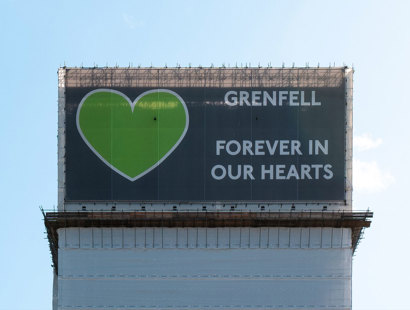
Grenfell Tower Inquiry Report: key findings and recommendations
The Grenfell Tower fire on 14 June 2017 caused the deaths of 72 people. Our firm has been representing those affected by the fire since the immediate aftermath; in the Inquiry, regarding their civil claims, and concerning their rehousing.
On 4 September 2024 the final report of the Grenfell Inquiry was finally published and found that the deaths of 72 people in the fire were wholly avoidable and that many opportunities to avoid the disaster were missed.
The Inquiry’s final report: "dishonesty and deregulation"
The report states that the government department responsible for fire safety displayed a "complacent and at times defensive attitude to matters affecting fire safety". Deregulation dominated the government’s agenda to such an extent that “even matters affecting the safety of life were ignored, delayed or disregarded”.
In addition, the report finds that there was systemic and calculated dishonesty by cladding and insulation manufacturers that engaged in “deliberate and sustained strategies to manipulate the testing process” to deliberately conceal the danger of using their flammable products. “Systematic dishonesty” by product manufacturers was a “very significant reason” why Grenfell Tower was clad in such dangerous materials.
The report further provides that the Royal Borough of Kensington of Chelsea (‘RBKC’), that owned Grenfell Tower, maintained a “culture of concealment” in relation to fire safety issues. The Tenant Management Organisation (‘TMO’), that managed Grenfell Tower, considered the residents of Grenfell Tower that raised fire safety concerns “militant troublemakers” and failed to take their responsibilities to keep residents safe from fire sufficiently seriously. Both the TMO and RBKC had a “fundamental carelessness about fire safety”. This carelessness led to many failings—including the installation in 2011 of defective fire doors which failed to self-close, which allowed deadly smoke to fill the building on the night of the fire.
The TMO’s only fire risk assessor was “ill-qualified to carry out fire risk assessments on buildings of the size and complexity of Grenfell Tower”. Those responsible for the refurbishment project were ignorant of their duties to ensure the building was safe. The architects demonstrated a “cavalier attitude to the regulations affecting fire safety”. Accountability was diluted as “everyone involved in the choice of materials to be used in the external wall thought that responsibility for their suitability and safety lay with someone else”.
Recommendations: improve fire safety and accountability
The Building Safety Act 2022 (‘the Act’) was introduced by the Government in response to the Grenfell Tower fire. The Act makes significant strides in addressing some of the failings which led to the Grenfell Tower tragedy, and has increased regulatory requirements in the sector, to improve fire safety and accountability. Our firm regularly advise Landlords and Tenants concerning the implications of the Act.
The Inquiry’s final report however notes that further action is still necessary to resolve further issues identified in the industry. The Inquiry recommends that a single construction regulator should be responsible for overseeing all functions of the construction industry, to stop the fragmentation of the industry. In addition, the definition of a “higher risk building” in the Act should be urgently reviewed and a higher risk building no longer defined with reference only to height, but also to the nature of its use and the likely presence of vulnerable people.
More recent tower block fires involving cladding—for example the recent fire in Dagenham in August 2024—highlight that residents remain at risk. The Government must therefore take urgent action to ensure that the Inquiry’s recommendations are implemented, and the construction industry must also recognise the critical importance of fire safety, to ensure that buildings in this country are secure and safe places to live.
Jodie Green is an associate in the property litigation team. She advises a broad range of clients with housing and property disputes including representing some of those affected by the Grenfell Tower fire in the ongoing Inquiry.
Get in touch
If you would like to speak with a member of the team you can contact our property litigation solicitors by email, by telephone on +44 (0)20 3826 7525 or complete our enquiry form.






